Avoiding A Cashflow Crunch In The New Year
With the new year comes a clean slate, the opportunity to start fresh and avoid bad habits and encourage constructive behavior and attitudes. Some call it “resolutions”, and others like to avoid that word.
But whatever word you use, there are certain goals that keep popping up, things that need improvement in the new year, such as like giving up smoking, eating better, getting more exercise, or being more responsible with money.
Financial responsibility is especially near and dear to businesses, where problems with cash flow can get out of hand and leave a company dead in the water. This is particularly true for hospitals which, as the article “Avoiding A Hospital Cash Flow Crisis” points out, ” … there are numerous processes involved in billing that can expedite or slow cash flow”. After all, all of the changes in health care and insurance over the past few years mean new challenges for hospitals and other health providers.
In the spirit of keeping that slate clean, here’s four ways that businesses can avoid a cash flow crunch in 2015.

Keep The Technology Up-To-Date
Billing cycles have the potential of getting overly complex, and if a business doesn’t have the proper data infrastructure to handle these unique demands, it could result in revenue that’s either lost or at best, delayed. Businesses that can’t afford to invest in better technology sometimes partner with better-equipped organizations, a tactic that some rural medical providers have adopted in conjunction with city-based hospitals. But having the right technology in-house is preferable, as long as the investment can be made painlessly. And speaking of spending …
Avoid Pointless Spending
Whether it’s purchasing too much inventory, having more personnel than needed, or throwing money at little-used procedures, it’s clear that wasteful spending can easily cripple an organization’s cash flow. This means taking a good, hard look at what’s being purchased, even if it means taking things item by item, and asking “Is this really necessary?” This is also a good opportunity to draw a distinction between what you want, and what you need, and clear up the confusion.
Send Out Invoices Promptly
Your funds are doing you no good if they haven’t been collected. Being owed eight hundred thousand dollars by customers, clients, or patients is not the same as having that cash on hand. This means tightening up the accounts receivable cycles, where even shortening it by a few days can make a noticeable difference in cash flow.
On a related note, overdue bills can’t be allowed to simply fester. Failure to respond to requests for payment after a reasonable time period has elapsed needs to be moved on quickly. The older the bill, the more likely the customer or patient is likely to forget it, or assign it less importance, a subconscious form of budgetary triage that means the business or hospital won’t get paid for quite some time.
Maintain Stronger Budgetary Oversight
Look at this in terms of a diet analogy. Going on a diet is fine, but if there’s no accountability, it’s useless. Whether you run a business, work as a freelancer, or administer a health-care facility, you need to set up a budget, and have a pair of eyes constantly watching it for cost overruns. Any organization that wants to maintain financial solvency needs a monetary watchdog.
These are just a few tips on how to keep a healthy cash flow and prevent problems. There are more out there for your perusal. But whether you adopt one or more of these strategies, make it a point to characterize 2015 as a year where money wasn’t an issue.




